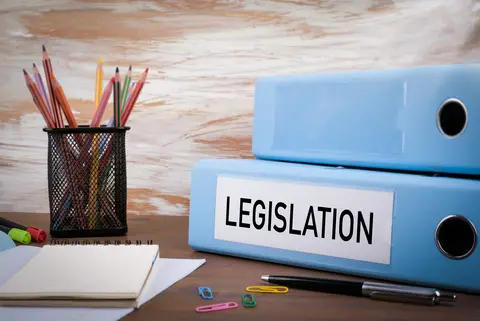There is considerable attention on major bills in Washington that surely will impact small businesses, such as health care and tax reform. But there are a number of other bills that have been proposed; these will also affect small businesses. Whether they have any chance of being enacted is unclear, but here’s a rundown of some of the proposals in this Congressional session. You decide what their impact will be on your company.
Measures impacting business formation and investments
There are several bills in the House and Senate designed to incentivize the creation of businesses and investments in them:
- Regulatory reform. The Regulatory Accountability Act of 2017 (R. 5) would require government agencies to consider the direct and indirect impact of regulations on small business. Currently, agencies are only required to take direct impact into account. Also, the proposed law would require agencies to choose the least-costly option that meets their statutory goals. It’s passed the House.
- Proposed tax change for startups. Ordinarily costs paid or incurred in connection with creating an active trade or business or investigating the creation or acquisition of an active trade or business must be capitalized, but a special tax rule allows them to be deducted in the first year of business up to a modest $5,000. The Promote Startups Act of 2017 (R. 419) (and H.R. 420) would increase the deduction limit for start-up expenditures to $15,000. It would also increase the amount of expenditures at which the upfront deduction phases out. 2/19
- Tax credit for veteran start-ups. The Veteran Small Business Tax Credit Act of 2017 (R. 2764) would create a new tax credit for veteran-owned businesses starting up. The credit would be 15% of start-up costs up to $80,000. It would apply to veterans and their spouses or surviving spouses.
- Incentive for investing in high tech. Currently, losses from passive activities can only be deducted to the extent of passive activity income (with some exceptions). The Partnerships to Advance Revolutionary Technology and Novel Entrepreneurial Research (PARTNER) Act (R. 2297), would create an exception to this rule for investments in small business pass-through entities engaged in this type of work.
- Deferral of employment taxes. The Main Street Revival Act (R. 2265) would allow small businesses to defer the payment of certain employment taxes for the first year of operations. A business that opted for this deferral would then make 4 equal installments starting one year after the original due date. This option would be limited to businesses within a HUBZone that did not employ more than 25 full-time employees in the first year. A listing of current HUBZones can be found here.
Measures impacting employers and their staff
Many of the proposals in Congress are designed to reward or incentivize employers to offer certain benefits to employees.
- Tax simplification for a mobile workforce. Bills introduced in the House (R. 1393) and Senate (S. 540) would simplify taxes for those who work in more than one state. More specifically, an employee would not have to pay tax to a state in which he/she didn’t live unless the employee worked in the other state for more than 30 days in a year. It would also simplify reporting requirements for companies with employees who live in different states. A similar measure passed the House last year but not the Senate. Because of broad bipartisan support, simplification could be enacted this year.
- Comp time. Currently it’s illegal for an employer to give comp time instead of paying any required overtime. However, the Working Families Flexibility Act (R. 1180) would amend the Fair Labor Standards Act to permit employers to give comp time in lieu of overtime pay. The choice between comp time and overtime pay would have to be voluntary with the employee. It’s passed the House.
- Apprenticeship credit. Leveraging and Energizing America’s Apprenticeship Programs (LEAP) Act (R. 2399) would create a credit for apprenticeship programs. The credit would be $1,500 for an apprentice under age 25, or $1,000 for one age 25 and older. The credit could be claimed for 2 years. The credit would become part of the general business credit.
- Employer contributions to 529 and ABLE accounts. The 529 and ABLE Improvement Act (R. 529) would expand the ability of companies to make contributions to employees’ 529 plans and ABLE accounts. It would create a qualified payroll deduction contribution program to enable pre-tax contributions (but only up to $100 per year). It would also create a tax credit for employer contributions to these plans.
- Employer tax credit for paid leave. The Strong Families Act (H.R. 3595) would give employers a tax credit for offering paid family and medical leave. The maximum credit would be for 12 weeks (to coordinate with the federal Family and Medical Leave Act). It would also require the General Accountability Office (GAO) to study the impact of the credit on increasing access to paid leave among qualifying employees.
- Employer help for paying student loans. The Student Loan Repayment Assistance Act (R. 108) would create a tax credit for employers that help their employees with student loan debt. The credit would be 10% of repayments up to $500 per month. The credit would be refundable for small employers (not more than 100 employees).
Other measures
Some pending bills defy categorization. For example, the Save Local Business Act (H.R. 3441) would roll back the NLRB’s joint employer stance. This would restore the common law definition of employer.
What small business owners should do?
Familiarize yourself with what’s going on in Congress. You can use GovTrack to receive alerts on legislation impacting subject areas of interest to you, such as labor and employment or taxation. Also, use this site to find out how to contact your local representatives in order to express you views on pending legislation.


